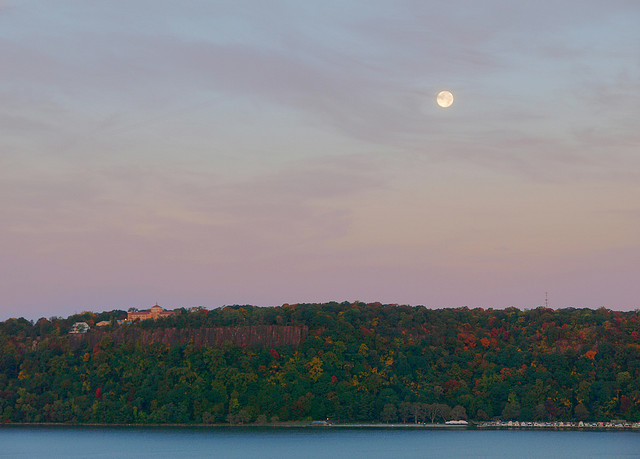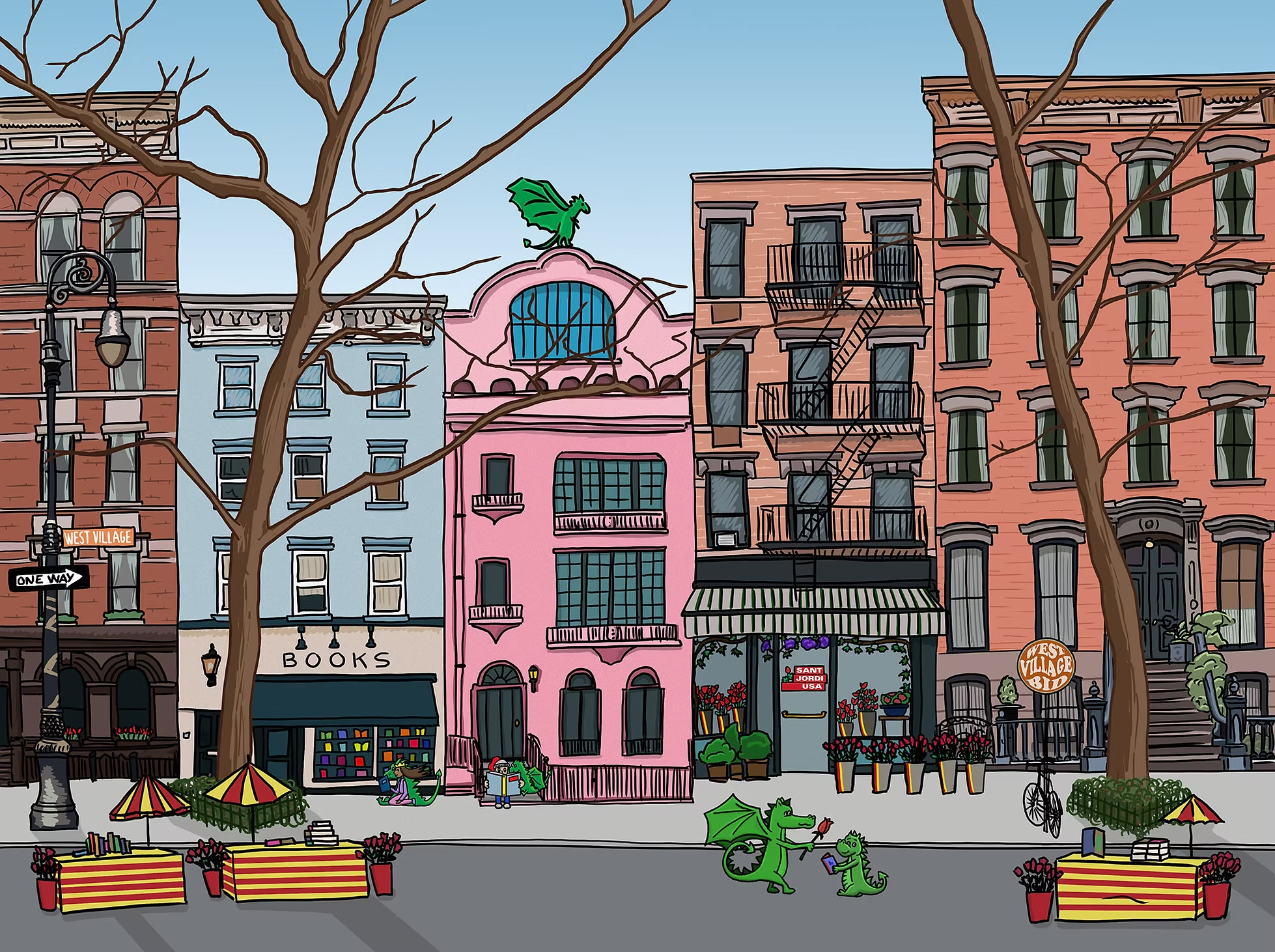
Today’s service is the blessing of the animals, and the congregation is clustered on the lawn with designer dogs on extendable leashes and mysterious scuttling boxes lined with hand towels and one leopard gecko that, waiting for its blessing, relieves itself on its young owner’s father. He scrubs at his shirt at the sink in the church basement, where J and I are helping to set up for the post-service coffee hour, halving banana bread and quartering bagels and decimating cantaloupe. The man blessed by his son’s gecko may need to be reminded of the copy on the service’s tri-fold program: We do not bless animals to make them holy; we bless them because they are already holy. The program asks us to save animals like Noah, to care for them like Francis. It reminds us of upcoming youth group events.
We realize just in time that we have forgotten the milk, and as the congregation begins their final hymn J and I are sent back to the A&P for a quart. I am a stranger in this, J’s childhood hometown, and the shortcut she pulls me on—through the church’s back lawn, past a snuffling French bulldog and a retriever the exact color of Robert Redford’s hair, and directly across the street to the grocery store I thought was a mile away—shocks me. I am disoriented, my mental map of the town suddenly collapsing like a telescope, and I feel like J has led me through an unambitious but beautiful wormhole.
The grocery store’s parking lot has a view of the Palisades, smooth rock faces across the river. They are sun-baked and served to us on a bed of blushing foliage. Despite the urgency of our errand, I can’t help but slow and remark on them. As we speed-walk through the store J begins to tell me about their geology; a rockslide in her childhood; a neighbor or a relative with a conspiracy theory about the origin of the cliffs.
A lightning-fast lap of the A&P, with J greeted by name in the checkout line, and then there are the Palisades again, beaming across at us. J doesn’t need to look; I can’t stop staring. As we cross back to the holy side of the street she tugs, without breaking stride, to pull me to the safety of the sidewalk before an approaching car.
We sneak behind the crowd on the church lawn—some still waiting for their blessings, some just beginning to break up—and through the side door. The impatient bulldog whines and the carton of milk sweats in my free hand as I am led back inside to percolating coffee and more stories about the origins of things that have been beautiful since before they were mine, and it feels right that I am bypassing the waiting crowd, saved, cared for, and already blessed beyond fairness.
Photo by Flickr Creative Commons user Steve Guttman NYC




